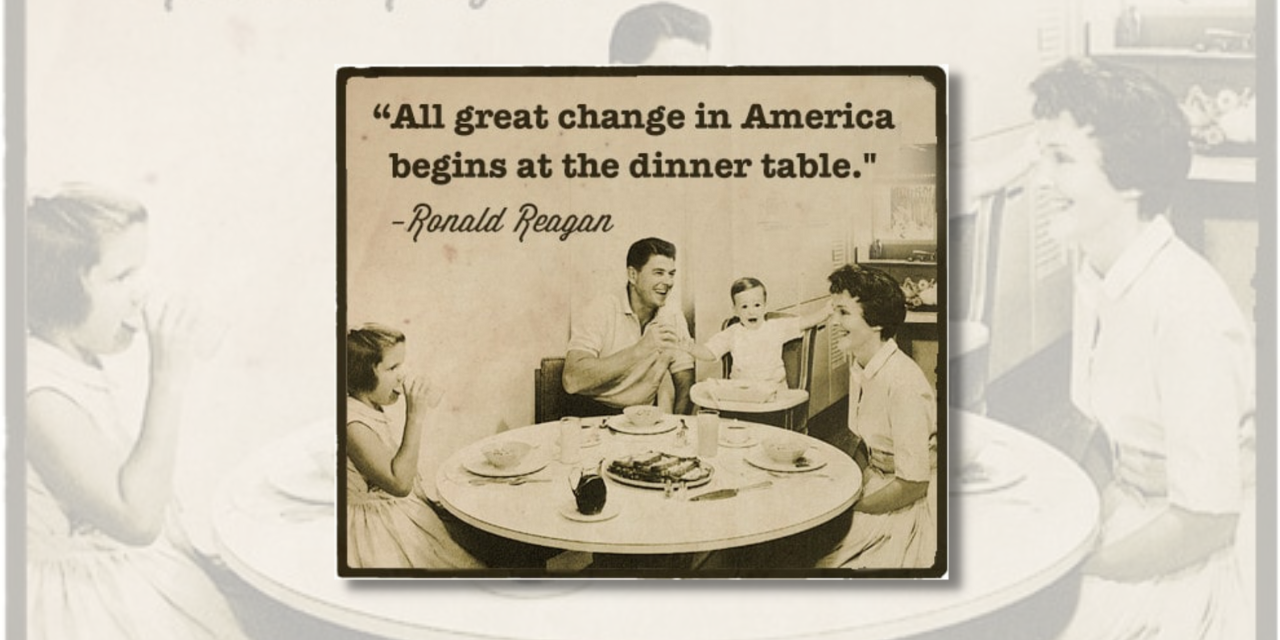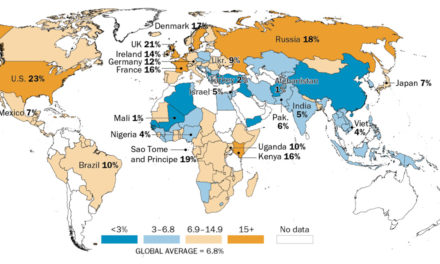A recent Wall Street Journal headline grabbed my attention:
Family Dinners are Key to Children’s Health. So Why Don’t We Eat Together More?
It’s a good question and one that’s easily answered:
It’s a combination of conflicting work schedules and today’s parents giving higher priority to their children’s extracurricular activities than they do to family togetherness.
Researchers from Harvard Medical School report that between 1996 and 2008, family dinners with teens declined on average from five days per week to four. But a more recent survey out of the University of Minnesota found that one-third of families ate together just one or two times each week, if at all.
This is even though studies show teens who dine with their families more frequently suffer less anxiety and depression and are much less likely to be addicted to drugs and alcohol than kids who eat on the run. Families who eat at home are also healthier and struggle less with obesity.
We all like a good meal, but eating together as a family has less to do with what’s on the table and everything to do with who’s in the chairs surrounding it.
“All great change in America begins at the dinner table,” President Ronald Reagan said in his 1989 farewell address. The “Great Communicator” was talking about the time we need to pass on our hopes, values, dreams and convictions to the next generation. Time to talk can be incredibly formative and effective. But time is the key.
“When I was growing up, we always had a big family dinner at around noon on Sunday,” recalled Supreme Court Justice Samuel Alito. “I still love that whenever it is possible to gather the family together.”
The rising cost of living has squeezed many families, and in a large number of cases, led to both parents working outside the home. Long days then lead to waiting in long lines at a local drive-thru. Other families may do dinner in split shifts, with some members eating first and others later on.
School, sports and a wide variety of other activities also have a way of turning the traditional family dinner hour upside down. Well-intentioned parents, not wanting their children to miss out on scholarship opportunities, social outings or a skill they believe just needs a little honing, often find themselves resembling something of a taxi or Uber driver, shuttling kids between classes, practices and rehearsals.
Maybe we just have to say, “Enough is enough.”
Many parents have found sanity and family success by limiting their children to one activity per season or skipping every other one in an effort to establish a healthier rhythm in the home. Busyness can be detrimental on numerous levels, including children’s anxiety levels. Resist “FOMO Syndrome” – the Fear Of Missing Out.”
Christian families should also give serious consideration to steering clear of extracurricular activities that might conflict with Sunday church services or weekday youth groups or small group Bible studies. With disposable income, many families sign up for sports travel teams, which then take them out of town over weekends. It’s possible to worship the Lord anywhere, but far too many sports tournaments don’t respect the sanctity and sacredness of the Lord’s Day.
Parents might also want to consider just how fast and fleeting are the days with children in the home. Trading away the precious evenings around a table with your kids for a host of games and activities that will soon all blur together can be a fool’s wager.
As a father of three boys, ages 17, 12 and 10, my wife and I have refereed many a family dinner, navigating kicks, jabs, dirty looks, accusations of stolen food and countless other silly issues lost to the years. But we wouldn’t trade those shared meals for anything in the world. All of the boys have their seats, and when one is missing, a part of me is missing, too. I realize the day will come when they leave for school or marriage – but until then, we give thanks for the time we have with them.






